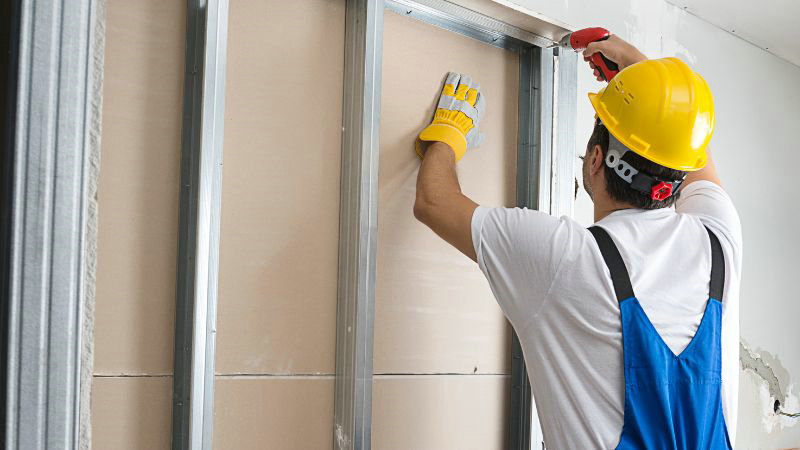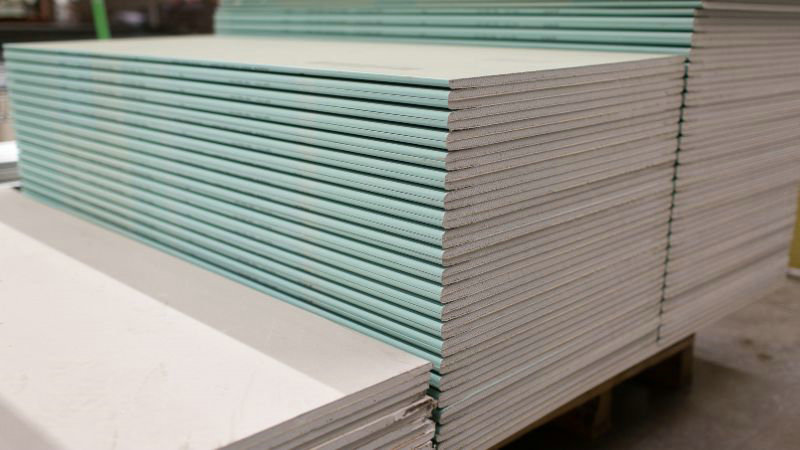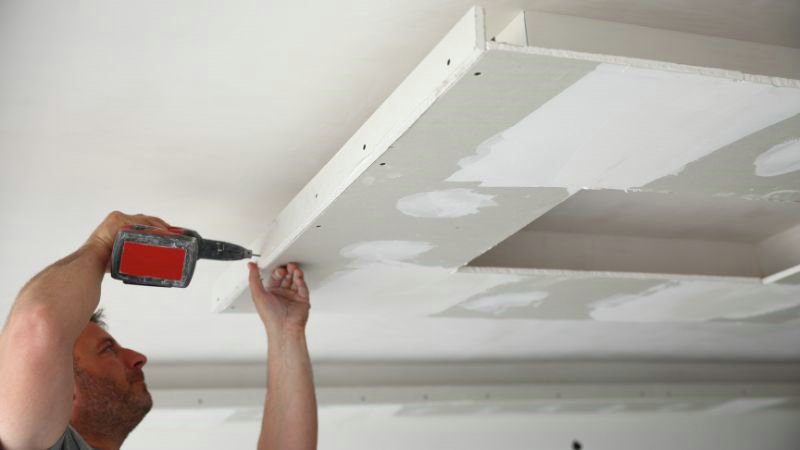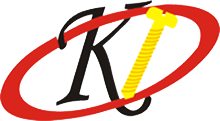
When it comes to home improvement projects, using the right tools and materials is crucial for achieving professional-looking results.
One common question that arises among DIY enthusiasts and novice handymen is whether wood screws can be used for drywall installations. While it might seem like a convenient solution, especially if you have wood screws readily available, the answer isn’t as straightforward as you might think.
In this article, we’ll explore the differences between wood screws and drywall screws, discuss the potential risks of using wood screws for drywall, and provide insights into why using drywall screws for your projects can make success.
What is Drywall?

Drywall, also known as gypsum board, plasterboard, or wallboard, is a panel made of gypsum plaster pressed between two thick sheets of paper. It is primarily used for building interior walls and ceilings in residential and commercial buildings.
The drywall core is made of gypsum, a soft sulfate mineral, which provides fire resistance and sound insulation, and the paper layers support the weak gypsum core, allowing it to be cut and installed easily without crumbling.
Why are Wood Screws Not Recommend For Drywall Projects?
The Characteristics of Wood Screws
Wood screws are commonly found with oval, round, or flat heads, typically made from hardened steel, brass, or stainless steel. They are designed with a sharp point and deep threads to provide a strong grip.
When Wood screw meets Drywall
From the perspective of wood screw design, wood screws have coarser, deeper threads which can damage the delicate paper surface of the drywall and may not provide adequate holding power in the gypsum core.
Furthermore, wood screws often have better corrosion resistance, which is unnecessary for most interior drywall applications, and wood screws often require pilot holes, making the installation process slower and potentially damaging to the drywall.
As we talked about before, the wood screw heads are flat and round, which can not countersink into the drywall surface.
To sum up, you can use wood screws when doing your drywall project. However, we don’t recommend it.
What Type of Screw is Suitable for Drywall?

The best screws for drywall are drywall screws.
These screws have a bugle-shaped head that sits flush with the drywall surface, protecting the paper from tearing. They’re usually made of hardened steel and often feature a black phosphate finish to resist corrosion.
Drywall screws have a sharp, self-drilling point that easily penetrates drywall without needing pre-drilling. This speeds up installation and minimizes the risk of cracking.
Typically, drywall screws come with coarse threads running along the entire shaft, offering a superior grip on the drywall’s gypsum core.
Most drywall screws use a Phillips drive, which provides good torque and reduces the chance of slipping during installation.
They come in various lengths, usually from 1 inch to 2 inches, offering versatility for different drywall thicknesses and stud types.
For wood studs, W-type drywall screws with coarse threads are ideal as they mesh well with the wood grain. For metal studs, S-type drywall screws with finer threads work best.
What are the Differences Between Wood Screws and Drywall Screws?
Here is a quick introduction for you to check if you need wood screws or drywall screws for your construction project:
| Feature | Wood Screws | Drywall Screws |
|---|---|---|
| Design Purpose | Woodworking projects | Attaching drywall to studs |
| Thread Design | Coarser, deeper threads | Finer threads |
| Head Shape | Various (flat, oval, round) | Bugle-shaped |
| Material | Softer metals, less brittle | Hardened steel, more brittle |
| Shank Design | Often partially unthreaded | Fully threaded |
| Corrosion Resistance | Often higher | Generally lower |
| Load-Bearing Capacity | Higher | Lower |
| Application | Structural, load-bearing | Non-structural, drywall mounting |
| Cost | Generally higher | Often less expensive |
| Quantity per Package | Usually fewer | Typically more |
Frequently Asked Questions
Are drywall screws suitable for use with wood studs?
Yes, drywall screws are specifically designed for this purpose. They have a bugle head shape and sharp points to easily penetrate both the drywall and wood studs, providing a secure hold.
Is it possible to use deck screws for mounting drywall?
Deck screws are not recommended for drywall. They have different threading and head shapes, which might not offer the same level of hold and can damage the drywall.
Should I opt for construction screws when hanging drywall?
Construction screws are also unsuitable for hanging drywall. While they are strong and versatile, their design may not provide the best grip for drywall materials and can result in poor installation quality.
Can drywall screws be effectively used in plywood installations?
Drywall screws can technically be used in plywood, but they are not the best choice. Their design is optimized for drywall and might not hold as well in the denser plywood material compared to screws designed for wood.
Do I need to use anchors with drywall screws for a secure hold?
Yes, using anchors with drywall screws is often necessary for a secure hold, especially when hanging heavy items. Anchors distribute the weight and ensure the screws stay firmly in place within the drywall.
